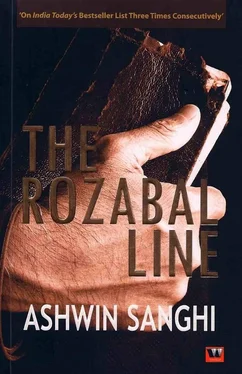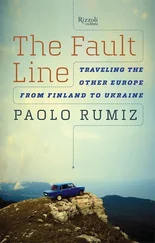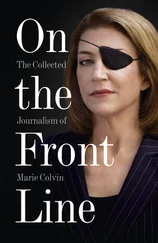‘Very well, Brother Manning,’ replied the banker.
Unknown to the outside world, the strange sounding offshore trusts managed by Herr Egloff for his clients had anagrams as the beneficiaries. Brother Manning chuckled to himself.
After all, the beneficiary of the Oedipus trust was Opus Dei and the primary beneficiary of the Isabel Madonna trust was Osama-bin-Laden.
Ladakh, India, 1887
Dmitriy Novikov was tired. [6]His expedition from Srinagar through the 3,500-metre-high Zoji-la Pass into Ladakh had been exhausting in spite of several men taking on the burden of luggage and equipment. The onward trek to Leh, the capital of Ladakh, and thereon to Hemis had sapped all his energy. To make matters worse, he had injured his right leg as a result of a fall from the mule that was carrying him.
Hemis was one of the most respected Buddhist monasteries in Ladakh, and their visitor was welcomed as an honoured guest. The monks quickly carried him into their simple quarters and began tending to his injury. While he was being fed a meal of apricots and walnuts washed down by hot butter tea, he met the chief Lama of the monastery.
‘I know why you are here, my son,’ said the Lama. ‘We too honour the Christian Son of God.’
Dmitriy was dumbfounded. He had not expected such a forthright approach. ‘Would it be possible for me to see the writings that talk of Issa?’ he began cautiously.
The wise Lama smiled quizzically at Dmitriy and then quietly continued, ‘The soul of Buddha certainly was incarnate in the great Issa who, without resorting to war, was able to spread the wisdom of our beautiful religion through many parts of the world. Issa is an honoured prophet, who took birth after twenty-two earlier Buddhas. His name, his life and his deeds are noted in the texts that you refer to. But first you must rest and allow yourself to heal.’
Dmitriy’s leg was throbbing with pain. The Buddhist monks applied a wide assortment of herbal remedies and packs, but they were of little help. He attempted to ignore the pain and continue his animated conversation with the Lama.
The Lama was turning his prayer-wheel when he stopped and said, ‘The Muslims and Buddhists do not share common-alities. The Muslims used violence and battles to convert Buddhists to Islam. This was never the case with the Christians. They could be considered honorary Buddhists! It’s truly sad to see that Christians decided to forget their roots and wander further and further away from Buddhism!’
Dmitriy was sweating profusely. The Lama’s words seemed to be questioning years of conventional wisdom. He realised how momentous his discovery was, but he also knew the danger of exposing his knowledge to the Western world. He would be branded a traitor and a liar. His words would be considered blasphemous. He would need to proceed carefully.
Dmitriy quickly asked again whether he would be able to see the sacred writings that the Lama was referring to. The Lama looked at him and smiled. ‘Patience is a Buddhist virtue, my son,’ he said. ‘Patience.’
Dmitriy was as patient as could be. He waited for several days to see the writings that the Lama had spoken of, the ones about Issa. It was difficult to conceal his anticipation and he had been sorely tempted to ask for the manuscripts without further delay. Today his patience had finally paid dividend. The Lama brought him a number of ancient scrolls written in Tibetan by Buddhist historians.
An interpreter was called for and began to translate the scrolls while Dmitriy attempted to make copies of them.
The scrolls told the story of a boy called Issa, born in Judea. The story went on to explain that sometime during the fourteenth year of his life, the boy arrived in India to study the teachings of the Buddhists. His travels through the country took him through Sindh, the Punjab and eventually to Maghada, the ancient kingdom of Ashoka, where he studied the Vedas, the Hindu texts of knowledge. However, Issa was forced to leave when he began to teach those whom the Hindu Brahmins considered ‘untouchables’ under the rigid caste system of Hinduism.
Issa then took refuge in Buddhist monasteries and began learning the Buddhist scriptures in Pali, the language of the Buddha. Thereafter he headed home to Judea via Persia. In Persia he made himself unpopular with the Zoroastrian priests. They expelled him into the jungles, hoping he would be eaten alive by wild animals.
He finally reached Judea at the age of twenty-nine. Because he had been away for so long, no one seemed to know him. They asked, ‘Who art thou, and from what country hast thou come into our own? We have never heard of thee, and do not even know thy name.’
And Issa said, ‘I am an Israelite and on the very day of my birth, I saw the walls of Jerusalem, and I heard the weeping of my brothers reduced to slavery, and the moans of my sisters carried away by pagans into captivity. While yet a child, I left my father’s house to go among other nations. But hearing that my brothers were enduring still greater tortures, I have returned to the land in which my parents dwelt, that I might recall to my brothers the faith of their ancestors.’
The learned men asked Issa, ‘It is claimed that you deny the laws of Moses and teach the people to desert the temple of God.’
And Issa replied, ‘We cannot demolish what has been given to us by God. As for Moses’s laws, I have striven to re-establish them in the hearts of men, and I say to you that you are in ignorance of their true meaning, for it is not vengeance, but forgiveness, that they teach.’ [7]
Dmitriy was excited. Then petrified. He knew there was no going back on his discovery. He now knew that he held in his hands one of the most stunning revelations in two millennia.
A revelation about Issa , the Arabic form of the Hebrew name Yeshua , also known as Jesus .
Srinagar, Kashmir, India, 1975
The house of Rashid-bin-Isar was overflowing with joy. His wife, Nasira, had just delivered a baby boy. The proud father had announced that he would feed all the poor and homeless in the city for a week. Large vats filled with lamb biryani, a spicy and aromatic rice pilaf, overflowed into the streets as beggars and street children flocked to Rashid’s home to feast.
Rashid cradled his firstborn in his arms as he recited the Islamic prayers, Adhan in the right ear and Iqaamah in the left ear of the child, as he awaited the Khittaan, the ritual circumcision.
Father and son appeared on the balcony a few moments later as cheers erupted from the throngs in the street. ‘I want all of you to bless my son. By the will and grace of Allah, he will be great. His name shall be Ghalib, the Victorious One!’
Gulmarg, Kashmir, India, 1985
Ten years later, the members of the Indian Army who burst into the weekend home of Rashid-bin-Isar were convinced that he had financed the activities of those responsible for the bomb blast in the market the previous day.
He pleaded his innocence, but his cries and protestations were to no avail. His terror-stricken family watched as their beloved abba was arrested on the spot.
He was quickly handcuffed and dragged away to prison, where he was punched and kicked till he could barely see, hear, talk, or walk. The next day he was found hanging in his cell; he had used his own clothes to fashion the noose around his neck.
The family had been allowed to take away his body to give him a burial. As per Islamic custom, in preparation for burial, the family was expected to wash and shroud the body. [8] However, this step was to be omitted if the deceased had died a martyr; martyrs were to be buried in the very clothes they had died in. Rashid-bin-Isar was going to be buried in the clothes he had died in. He was no less than a martyr.
Читать дальше












